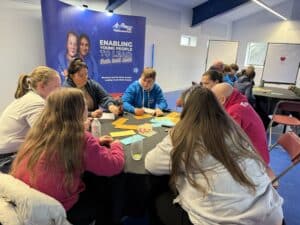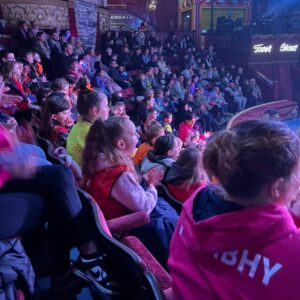The Boathouse Youth has been recognised by Westminster thinktank the Centre for Social Justice (CSJ) and Blackpool North MP, Paul Maynard, for the work it does supporting young people’s financial literacy in a real-life environment using experiential learning techniques.
Kawika Solidum, Head of North West Region for the CSJ Foundation said “The CSJ Foundation champions grassroots frontline charities and links them into national policy work. Whilst The Boathouse Youth, and the community of young people it serves, may be far from the heart of Westminster policymakers, together with the CSJ its learning, solutions and impact are shaping policy to improve lives across the UK. That’s what drives me.”
Blackpool was chosen because it scores highest on the financial vulnerability index of Lowell, who funded the research project. The Boathouse Youth was chosen as an organisation that focused on providing support and guidance to young people in the broadest possible sense, but also due to our existing work around financial education through the delivery of experiential learning projects.
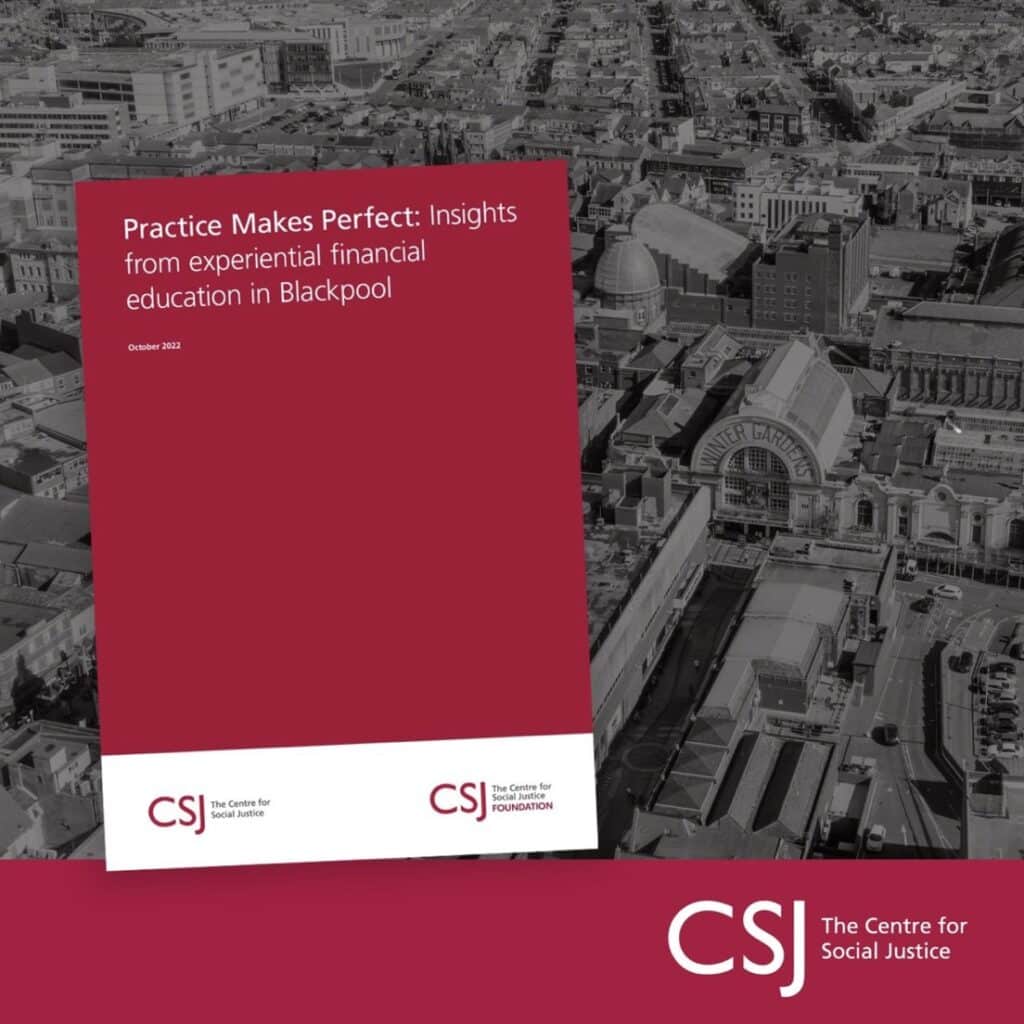
Financial education is an essential part of growing up but what The BHY recognised some years ago is that the knowledge young people have around money management seems irrelevant against the backdrop of their present reality. Whilst young people can answer basic questions such as ‘What is a mortgage or pension?’, which they report to have learned in school, they fail to understand the basics such as saving, budgeting and prioritisation. Our projects help young people attain this learning within environments that extend into real-life, rather than just by sitting them in front of a whiteboard.
One such project with which The CSJ engaged was our Canal Boating residential experience. A crucial part of our ‘life skills’ curriculum whereby groups of 40 young people are divided into four narrowboats for a 7-night experience. The crew are responsible for their personal sustenance, housekeeping, maintenance and navigation; tasks which can only be achieved through good communication and teamwork.
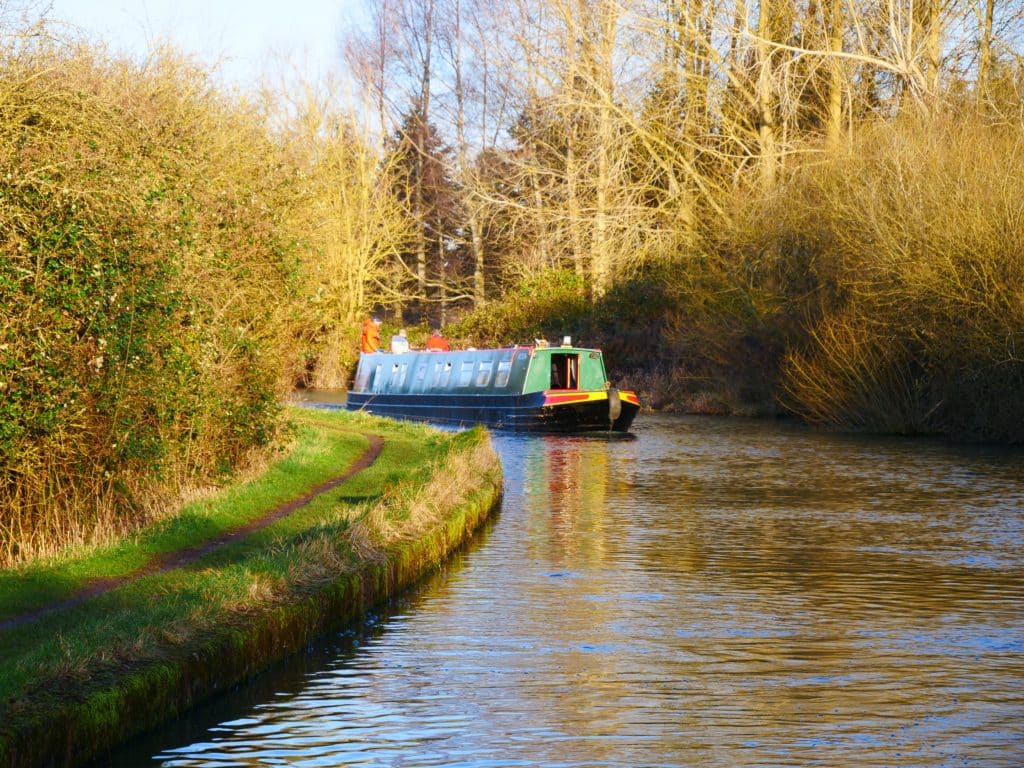
Each boat is assigned a £2,000 budget framed as a ‘monthly salary’ and must cover the boat’s hire fee, purchase of Calor gas bottles, sewerage pump-out fees, food and entertainment which translate into mortgage/rent payments, utility costs, and leisure spends in the real-world. A contingency budget should also be retained, to cover unforeseen costs such as accidental damage repairs. The importance of forward planning is emphasised, but invariably as the project progresses the groups are faced with difficult decisions regarding which costs must be prioritised. Daily de-briefings take place between staff and young people to explore the challenges that were faced during the day, and how the groups worked together to find solutions.
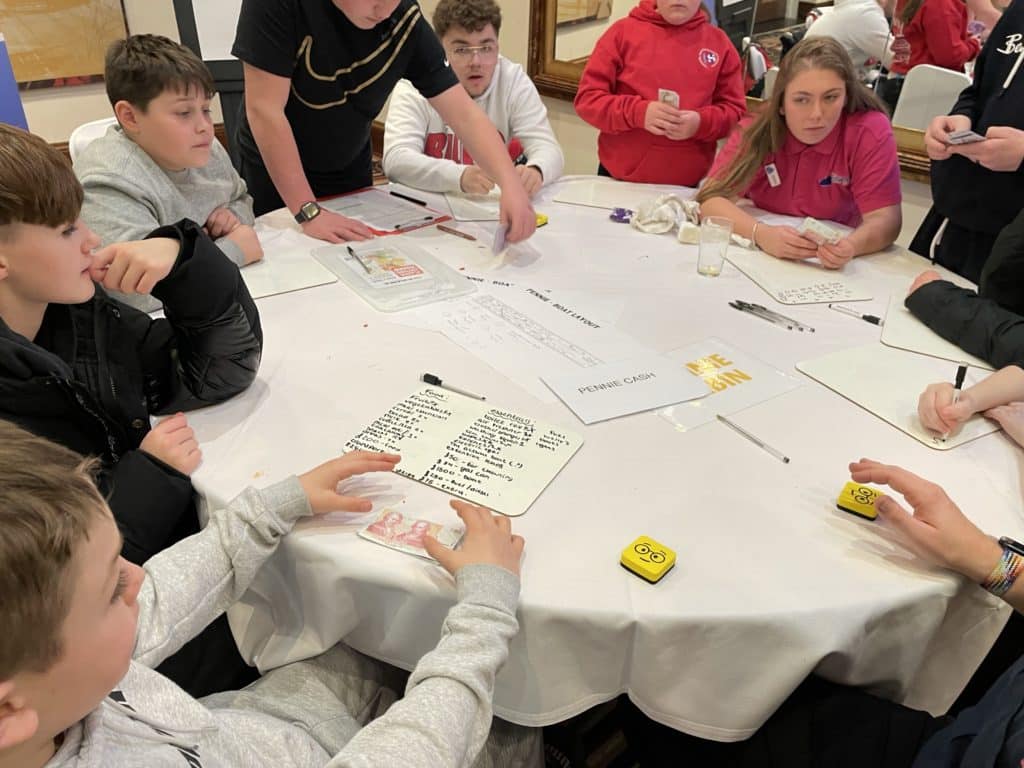
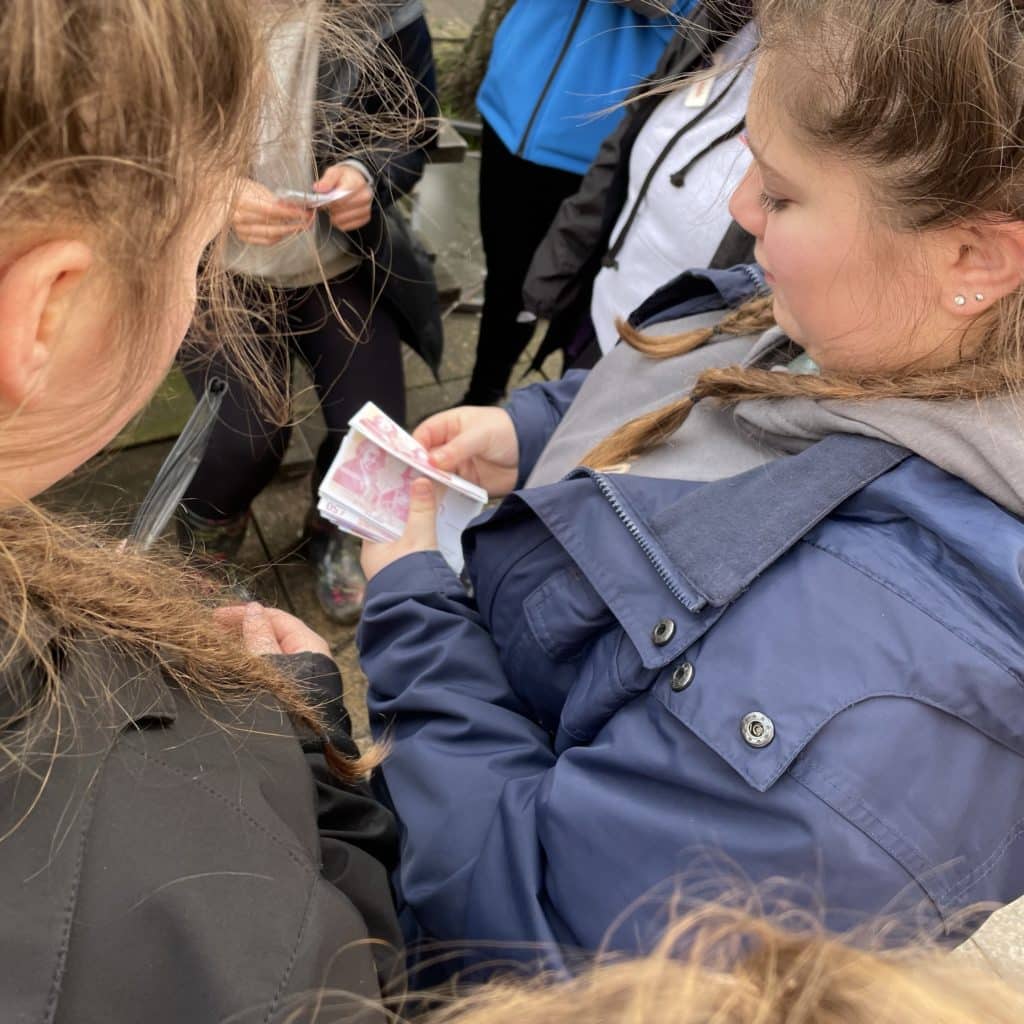

Young people participating on the project reported that “rather than just spending the money [they] wanted to make decisions with it, giving a sense of responsibility”. Sarah Lindsay, our Head of CYP Services, said: “It’s about providing the simplest of opportunities, such as where young people can use a self-scan system in a supermarket or pay using a debit-card. It’s priceless watching their reactions when they realise they’ve overspent so replace the branded goods for a cheaper version in order afford some treats too. These kind of things have happened to most of us at some point, so let’s allow young people to experience them in a safe and controlled environment.”
As a charity, The Boathouse Youth is passionate about tackling the symptoms and causes of poverty. Sadly, one of the symptoms is people having little money in their pockets, which invariably makes it very difficult to practice the skills required to manage it. Our theory is that by working with young people throughout their entire childhood – and developing strong and trusted relationships – we can make cumulative improvements to their skill set, something which cannot be sustainably achieved through a short-term course or one-off project.
As a town with eight out of the ten poorest neighbourhoods in the country, financial precarity is not a new phenomenon in Blackpool even with the current increases in the cost-of-living. Starting at a young age, it is crucial for young people to learn how to manage money, build up financial resilience, and be equipped to master their own financial affairs. With limited provision in the national curriculum, charities such as Boathouse Youth are a great forum for financial education and plug an important gap.
Paul Maynard MP, Member of Parliament for Blackpool North
The work Boathouse does across the Fylde Coast is all about partnering with children as they grow, offering development across their early lives, not just dipping in and out or helicoptering over them. It is a partnership that fosters confidence and respect and delivers valuable life lessons that are not always taught in an educational setting. The resilience Boathouse builds in young people is crucial for self-development in a world of great uncertainty.
Laurance Hancock, our CEO said “This is a topic that is so close to not only our hearts and minds, but also those of many of our corporate major donors: Key Group, Perch Group and Tandem Bank. We are extremely grateful to Lowell for making this piece of work possible and hope that it goes some way towards the rollout of similar projects nationwide.”
The CSJ also engaged with ‘The Apprentice’ project: a series of activities and challenges for young people to learn and practice using money. This included visits to Preston Market, a Car Boot Sale and planning and cooking a fancy meal for two!
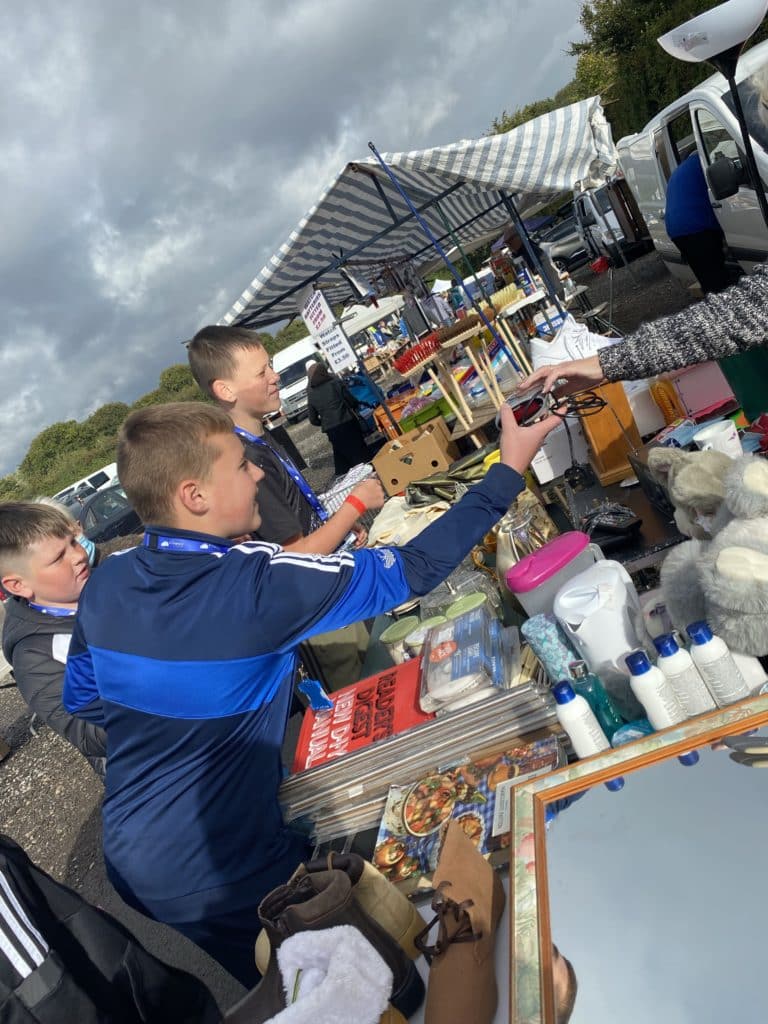
We wanted to ensure that the think tank’s researchers could extract valuable and genuine opinions from our young people – which meant they had to develop strong relationships with them first. They joined-in with Summer Camp activities including Ghyll Scrambling and the inflatable water park in Liverpool!
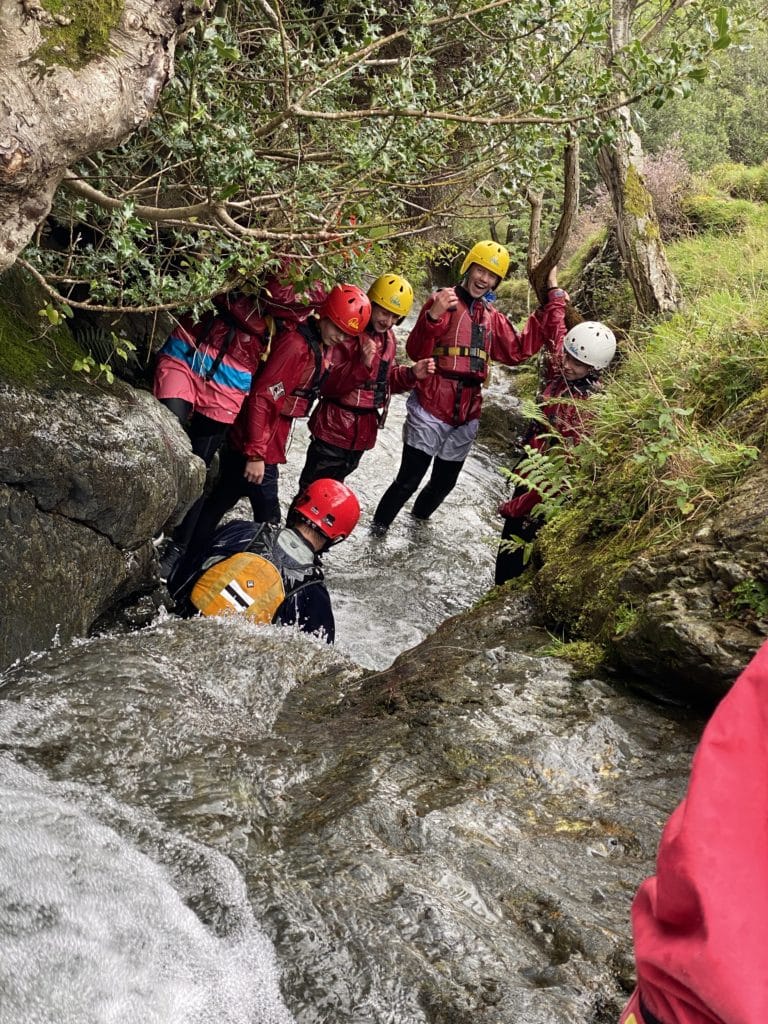
The research concluded that financial education in schools can work well, but needs to be relevant to the lives of young people in the here and now. Focusing education around money concepts that won’t be applicable for many years will be lost learning. Even lessons around medium-term concepts such as borrowing money from institutions fell flat in comparison to topics such as saving and budgeting.
The report also determines that parents and youth clubs are seen as trusted delivers of financial education by young people – and that without experiential learning the teaching falls flat. You can read the report in full here: Financial Education – Practice makes Perfect.



